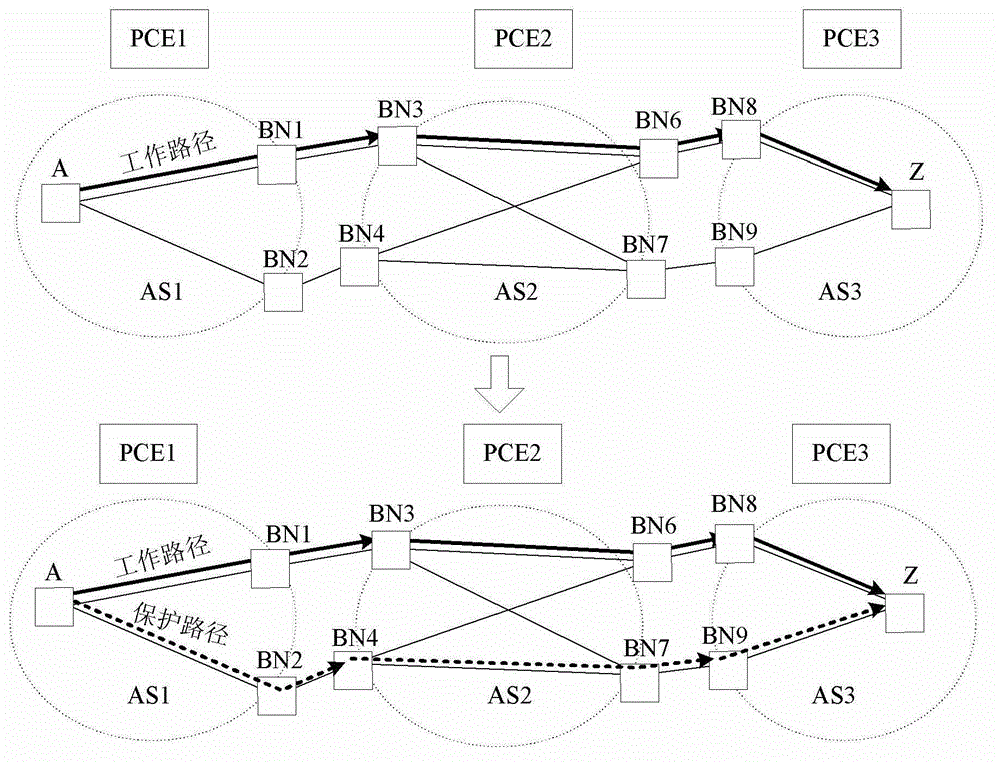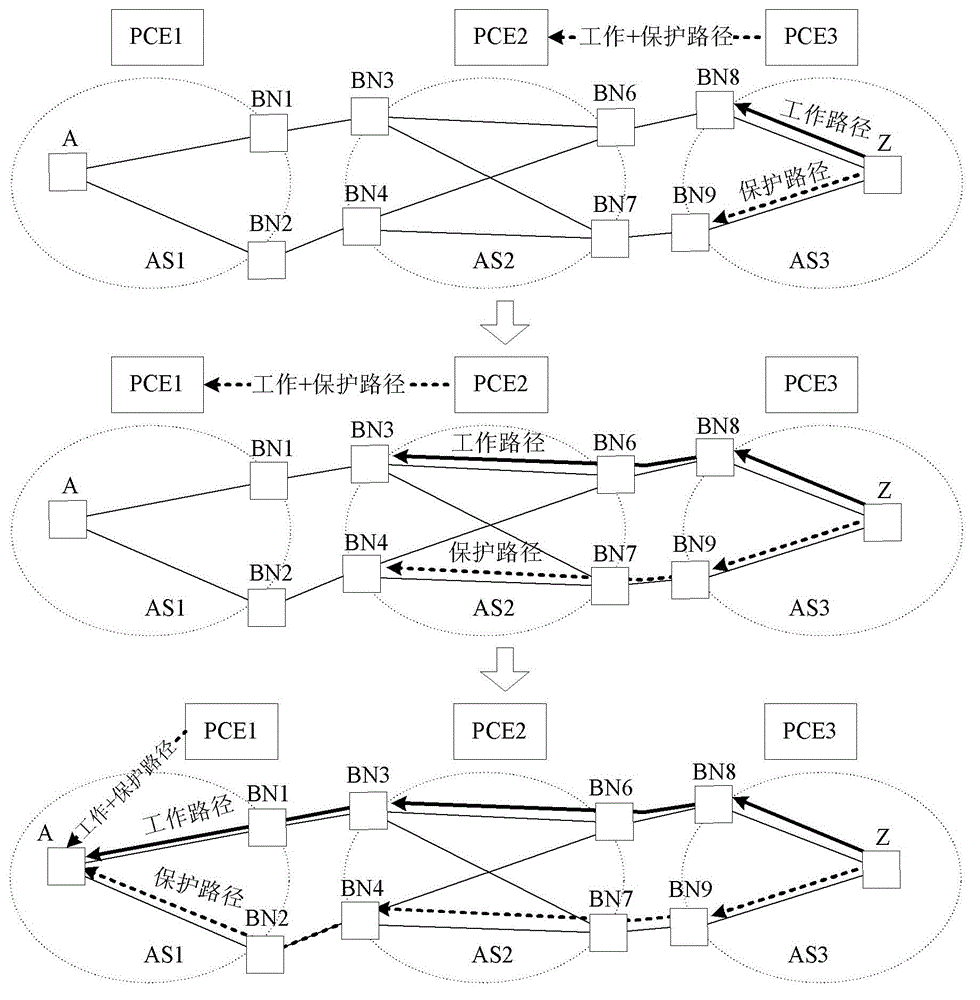Computation method and path computation element (PCE) of cross-domain disjoint path, and communication system
A path calculation unit and path calculation technology, applied in the field of communication, can solve problems such as difficulty in implementation, failure of calculation, inability to calculate the separation path of the original path node, etc., to achieve the effect of improving the success rate of calculation
- Summary
- Abstract
- Description
- Claims
- Application Information
AI Technical Summary
Problems solved by technology
Method used
Image
Examples
Embodiment
[0057] like image 3 As shown, this embodiment provides a path computation unit PCE for separating paths across domains, including:
[0058] The monitoring module is used to monitor whether the separation path calculation in this domain is facing failure during the sequence calculation process of the cross-domain separation path, and if so, notify the path adjustment module;
[0059] A path adjustment module, configured to adjust the path in the original path domain to be a suboptimal path without changing the incoming boundary node and outgoing boundary node in the original path domain after receiving the notification from the monitoring module;
[0060] The separation path calculation module is used to recalculate the separation path corresponding to the suboptimal path in the adjusted original path domain.
[0061] Wherein, the separation path calculation module uses the adjusted suboptimal path in the original path domain as the separation condition, and uses the suboptim...
application example 1
[0124]Application example 1: BRPC-based separation path sequence calculation process (without confidential path)
[0125] Figure 7 Three AS (AS1, AS2, AS3) and three PCEs (PCE1, PCE2, PCE3) are given in , BN1~BN9 are the boundary nodes of each domain, SN is the source node, and DN is the destination node. The solid line is the original path, for example: the working path, the solid line between BN3-BN6 is the path segment of the original path in the AS2 domain, denoted as P, and the dotted line between BN3-BN6 is the suboptimal path. For different inbound border nodes BN4 and BN5, the shortest path to BN7 is calculated as the separation path. The domain sequence used in the calculation of the separation path is the same as the original path, which is AS1→AS2→AS3, and the PCE sequence is selected as PCE1→PCE2→PCE3. The calculation process is as follows:
[0126] (1) The SN side starts to send a path calculation request to PCE1;
[0127] (2) PCE1 forwards the path computati...
application example 3
[0148] Application example 3: BRPC-based separation path sequence calculation process (with confidential path and updated to the first domain)
[0149] Figure 9 Three AS (AS1, AS2, AS3) and three PCEs (PCE1, PCE2, PCE3) are given in . BN1-BN9 are the boundary nodes of each domain, SN is the source node, and DN is the destination node. The solid line is the original path, for example: the working path, the solid line between BN3-BN6 is the path segment of the original path in the AS2 domain, expressed as pathkey1, and the dotted line between BN3-BN6 is the suboptimal path. For different inbound border nodes BN4 and BN5, the shortest path to BN7 is calculated as the separation path. The domain sequence used in the calculation of the separation path is the same as the original path, which is AS1→AS2→AS3, and the PCE sequence is selected as PCE1→PCE2→PCE3. The calculation process is as follows:
[0150] (1) The SN side starts to send a path calculation request to PCE1;
[01...
PUM
 Login to View More
Login to View More Abstract
Description
Claims
Application Information
 Login to View More
Login to View More - R&D
- Intellectual Property
- Life Sciences
- Materials
- Tech Scout
- Unparalleled Data Quality
- Higher Quality Content
- 60% Fewer Hallucinations
Browse by: Latest US Patents, China's latest patents, Technical Efficacy Thesaurus, Application Domain, Technology Topic, Popular Technical Reports.
© 2025 PatSnap. All rights reserved.Legal|Privacy policy|Modern Slavery Act Transparency Statement|Sitemap|About US| Contact US: help@patsnap.com



